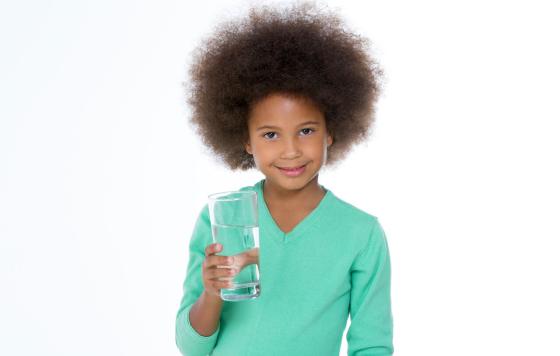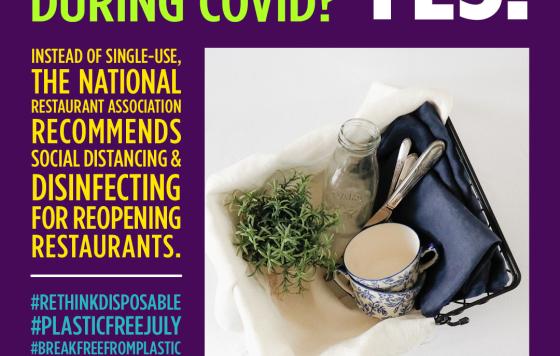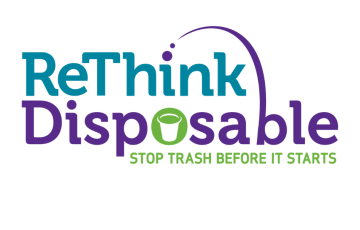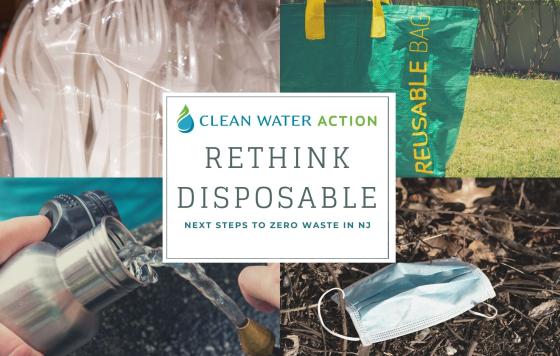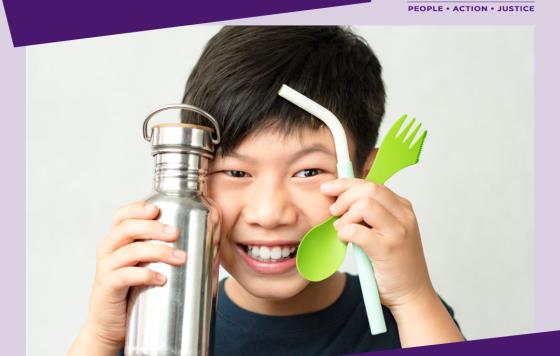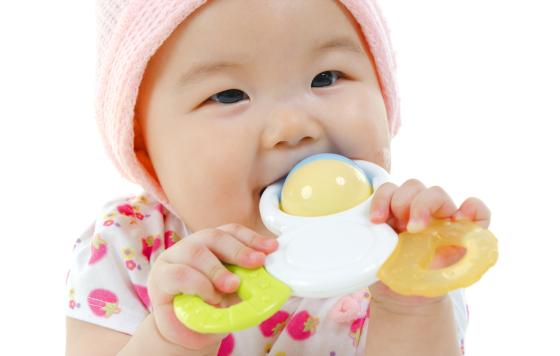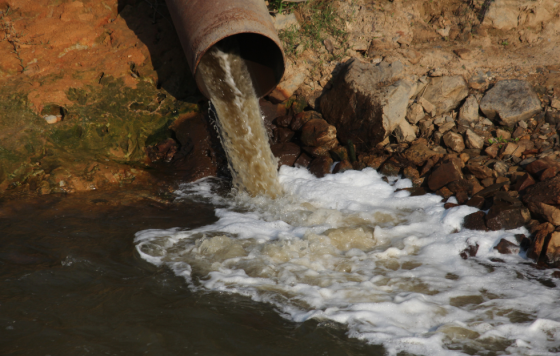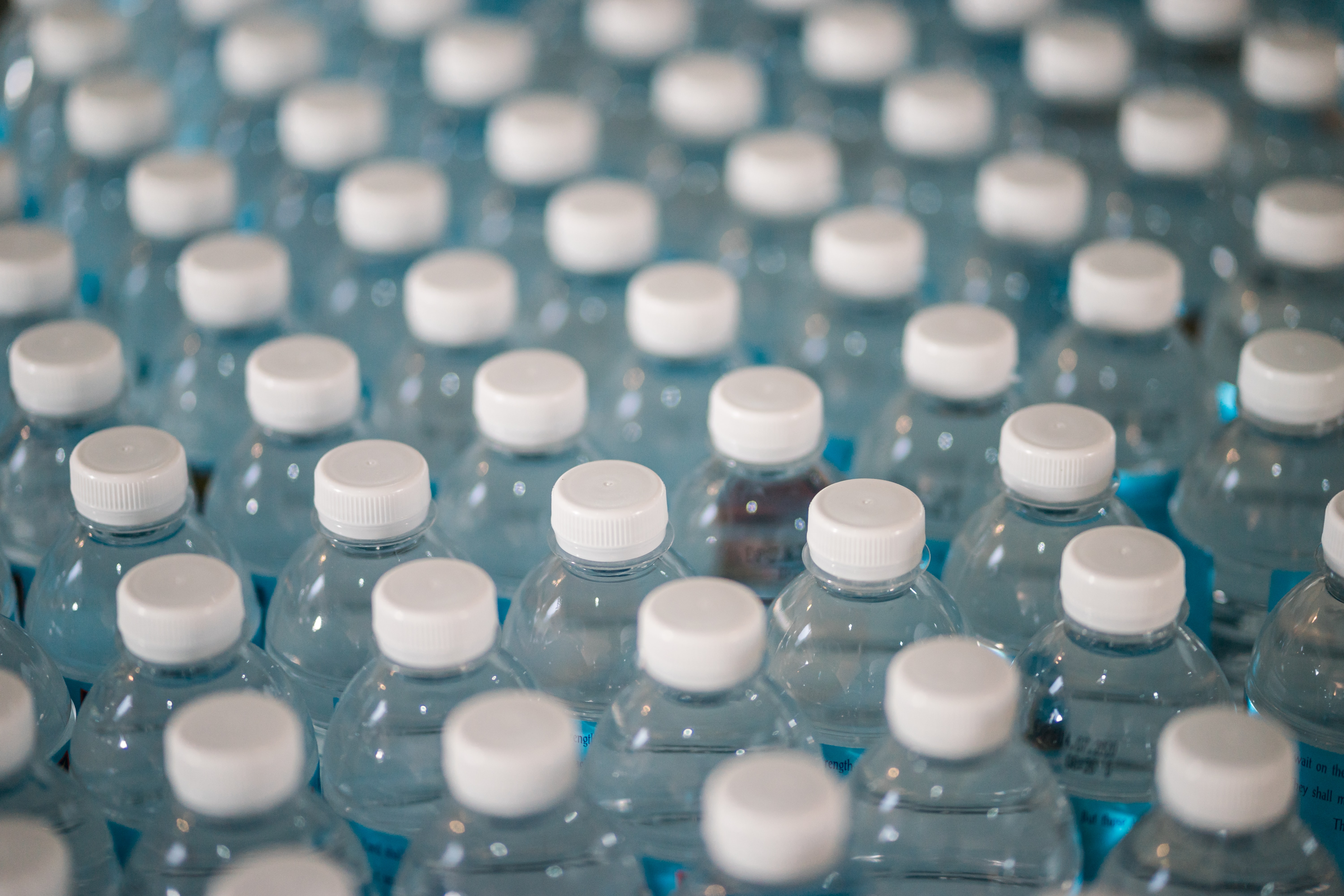
As we continue to advocate for the reduction of plastic use beyond Plastic Free July, the issue of bottled water remains a significant problem to not only the well-being of our environment, but the quality of our health as well.
In the U.S. alone, Americans buy an estimated 50 billion water bottles a year from a growing industry projected to reach $334 billion by 2023. Many consumers purchasing bottled water are presented with the facade of a high quality product. In reality, countless companies are simply filtering municipal water and bottling it! Next time you reach for the bottle of "pure" water, think twice as popular brands may be selling you water contaminated with microplastics and toxic chemicals from their plastic packaging.
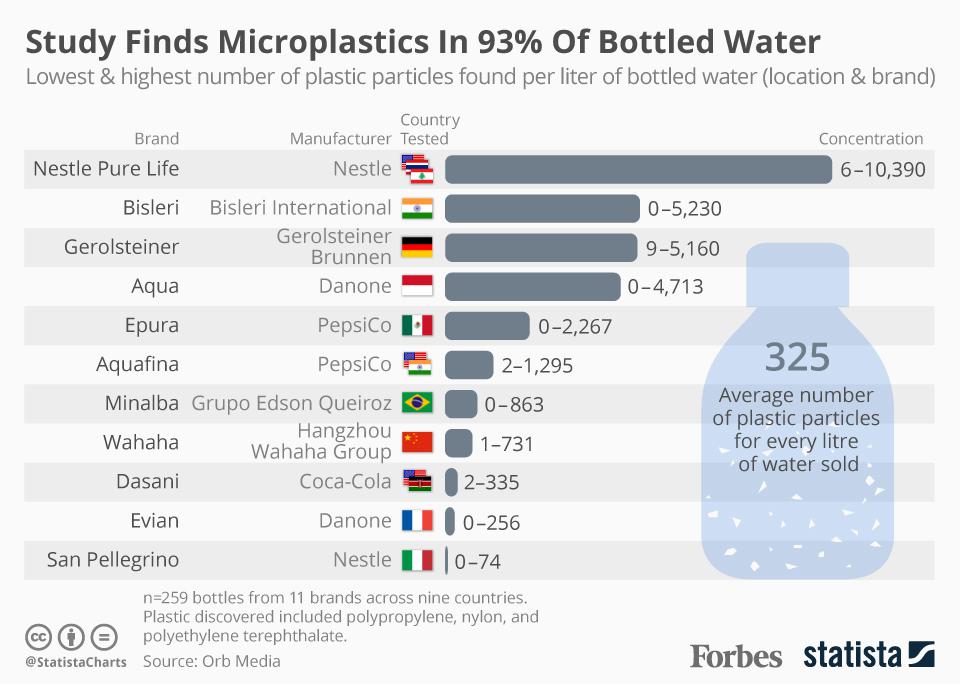
Plastic is everywhere. Most of us correlate plastic contamination to the destruction of our environment. According to the EPA, only 8.4% of plastic in the United States was recycled in 2017, but the problem continues to expand into the realm of human health. Recent studies show bottled water containing excessive levels of microplastics - small pieces of plastic debris less than five millimeters in size. According to research conducted by Orb Media, 93% of the 11 bottled water brands sampled, all showed traces of microplastics. The study included companies such as Aquafina and Evian, with Nestle Pure Life having one of the highest levels of contamination. Their research also showed bottled water contained about 50% more microplastics than tap water.
Most bottled water is sold in plastic #1, also known as polyethylene terephthalate (PET). Research shows that PET may be an endocrine disruptor, altering our hormonal systems. Although this type of plastic is BPA free, phthalates in bottles can still seep into your water, especially when exposed to high temperatures or stored for an extended period of time. Some companies, such as Poland Spring, use plastic #7 for their 3-gallon water bottles. This type of plastic contains BPA, which has been banned in countries around the world, including the European Union and China, due to its toxicity. BPA exposure is linked to multiple health effects including fertility issues, altered brain development, cancer, and heart complications.
It is not mandatory for bottled water corporations to conduct lab tests or inform consumers where their water originates. In contrast to bottled water, tap water suppliers must undergo testing to show contaminant levels, offer quality reports to consumers, meet EPA standards, and disclose their water sources. This means bottled water isn't always the safest option. Additionally, bottled water can be on average 1,000 times more expensive than tap water. So why are we still purchasing bottled water that pollutes our environment and impairs our health? As the obsession with bottled water brainwashes society, I felt compelled to ask people why they felt the need to make this purchase. Countless conversations later, I noticed a recurring theme: a desire to have safe and healthy drinking water.
Improving the quality of our municipal water is critical in order to switch to a safe and more sustainable alternative. The Clean Water for All Act acknowledges the importance and basic human right for everyone to have access to clean water. Reach out to your member of Congress to take action and express your support for this bill.
If you're not sure if your tap water is safe, check your Consumer Confidence Report, which outlines the contaminant levels of your tap water. We also urge you to reach out to your local water supplier to find out where your water comes from.
We can all do our part to reduce plastic pollution. Check out Clean Water Action's award-winning ReThink Disposable program which works with businesses, restaurants, schools, communities, and individuals to help them make the switch from single-use disposables to reusables. Not only will this save you money, it will help improve your health and keep our planet clean.
ReThink Disposable
ReThink Disposable Blog Series Part I: Zero Waste at Home & In Your Community
Plastic Free July 2022: Actions You Can Take to Reduce Your Single-Use Plastic Footprint!
Plastics and toxics in baby products
My spouse and I are expecting our first child in the spring. Needless to say, our friends and families are very excited, and we are receiving a lot of advice and insight. One of the most frequent nuggets we have been getting goes something like this: “It really starts to get fun and exciting when you get to put together your baby registry!”
